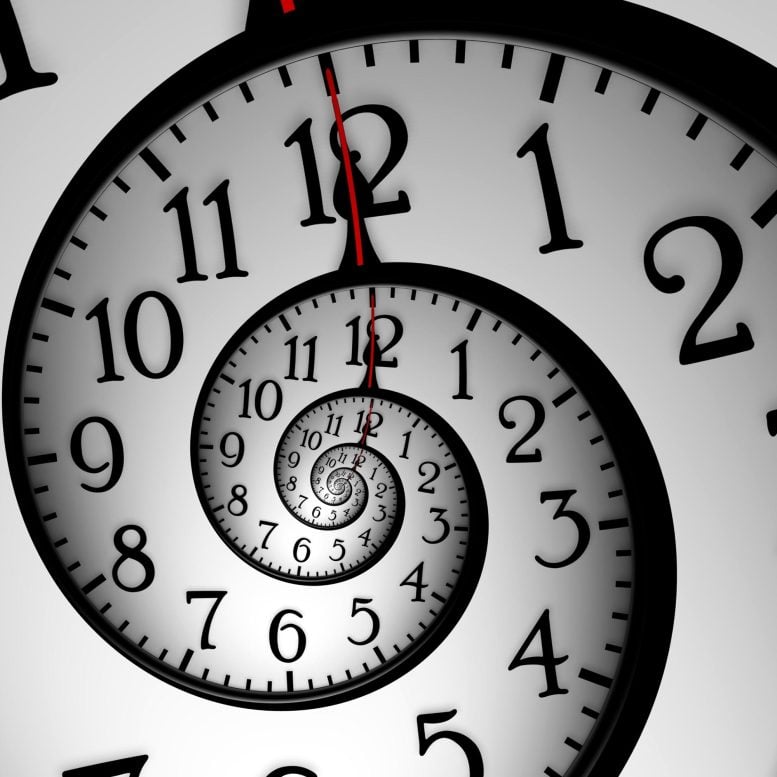
Researchers call for new studies to discover how our brains change when we’re awake after midnight.
You might identify with the Mind After Midnight hypothesis if you’ve ever stayed up late angrily commenting on Twitter posts, finishing another bottle of wine, eating a whole pint of ice cream out of the container, or just feeling miserable.
The hypothesis suggests that when humans are awake during the biological circadian night—after midnight for most people—there are neurophysiological changes in the brain that alter the way we interact with the world, especially actions related to impulse control, reward processing, and information processing. The hypothesis was detailed in a recent paper published in the journal Frontiers in Network Physiology,
“There are millions of people who are awake in the middle of the night, and there’s fairly good evidence that their brain is not functioning as well as it does during the day.” — Elizabeth B. Klerman, MD, PhD
These changes can make you more likely to view the world negatively, engage in harmful behaviors, and make impulsive decisions (including those associated with addictive behaviors such as substance abuse and gambling) without fully thinking through the consequences.
“The basic idea is that from a high level, global, evolutionary standpoint, your internal biological circadian clock is tuned towards processes that promote sleep, not wakefulness, after midnight,” says Elizabeth B. Klerman, MD, Ph.D., an investigator in the Department of Neurology at Massachusetts General Hospital, Professor of Neurology at Harvard Medical School and the senior author of the paper.
Klerman describes the hypothesis as a call for researchers to conduct new studies to better understand how these circadian differences affect behavior, decision-making, and job performance at night. These could identify strategies that can help people cope.
The findings could have wide-ranging effects on individuals who are required to be awake at night for work, including pilots, police officers, health care workers, and military personnel. Research could also lead to new strategies to reduce substance use disorders, violent crime, suicides, and other harmful behaviors.
“There are millions of people who are awake in the middle of the night, and there’s fairly good evidence that their brain is not functioning as well as it does during the day,” Klerman says. “My plea is for more research to look at that, because their health and safety, as well as that of others, is affected.”
Bad Things Happen After Dark
At night, people are more at risk for engaging in harmful behavior such as suicide, violent crime, and substance use, according to previous research.
For example, Michael L. Perlis, Ph.D., an Associate Professor of Psychology at UPenn’s Perelman School of Medicine and a co-author of the Mind After Midnight hypothesis, discovered that if you adjust for the number of people who are awake at any given time, suicides are statistically more likely to occur during the nighttime hours.
Homicides and other violent crimes are also more common at night, as are the risks of the illicit or inappropriate use of substances such as alcohol, cannabis, and opioids.
Our nighttime food choices at night also tend to be unhealthy, as we pursue more carbohydrates, fat, and processed foods and often consume more calories than we need.
So why is it that all these bad behaviors come out at night?
There are a few obvious answers. It’s much easier to commit a crime under the cover of darkness, for one. Also, there are fewer people around and awake at night to help us keep our behavior in check. However, it’s likely there’s a biological basis as well.
Klerman explains that the circadian influence on the neural activity in our brains changes over the course of 24 hours, leading to differences in the way we process and respond to the world.
For example, positive affect—the tendency to view information in a positive light—is at its highest point during the morning, when circadian influences are tuned to wakefulness, and at its lowest point during the night, when circadian influences are tuned to sleep.
In parallel, negative affect—the tendency to view information in a negative or threatening light is highest at night.
Your body also naturally produces more dopamine at night. This can alter your reward and motivation system and increase the likelihood of engaging in risky behavior.
This biased interpretation of information is then sent along to the parts of the brain responsible for decision-making, which normally work to control negative emotional distractions and focus on goal-oriented behavior.
However, at night these parts of the brain are also subject to circadian-influenced changes that can impair decision-making, functioning, and prioritization.
Suddenly, your worldview narrows and becomes more negative, you start to make poor decisions, and the mental map you create of the world around you may no longer match up with reality.
The result? You might end up drinking too much, missing a crucial diagnosis on a patient, crashing an oil tanker into some rocks, or worse.
Klerman experienced some of these feelings firsthand when she struggled to fall asleep after experiencing severe jet lag during a trip to Japan.
“While part of my brain knew that eventually, I would fall asleep, while I was lying there and watching the clock go tick tick tick—I was beside myself,” she recalls.
“Then I thought, ‘What if I was a drug addict? I would be out trying to get drugs right now.’ Later I realized that this may be relevant also if it’s suicide tendencies, or substance abuse or other impulse disorders, gambling, other addictive behaviors. How can I prove that?”
Putting the Hypothesis to the Test
The need for proof is key here. It’s critical to note that Mind After Midnight is still a hypothesis—one that will require validation through carefully constructed research studies.
In an ironic twist, the best way to gather this data without the confounding effects of sleep loss will require researchers and study staff themselves to be awake and working after midnight, for example by taking functional magnetic resonance imaging (fMRI) images of study participants whose sleep cycles have been carefully adjusted for nighttime wakefulness or conducting other protocols.
“Most researchers don’t want to be paged in the middle of the night. Most research assistants and technicians don’t want to be awake in the middle of the night,” Klerman concedes.
“But we have millions of people who have to be awake at night or are awake at night involuntarily. Some of us will have to be inconvenienced so we can better prepare them, treat them, or do whatever we can to help.”
Reference: “The Mind After Midnight: Nocturnal Wakefulness, Behavioral Dysregulation, and Psychopathology” by Andrew S. Tubbs, Fabian-Xosé Fernandez, Michael A. Grandner, Michael L. Perlis and Elizabeth B. Klerman, 3 March 2022, Frontiers in Network Physiology.
DOI: 10.3389/fnetp.2021.830338

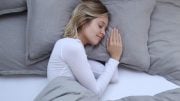
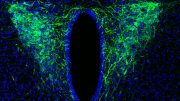

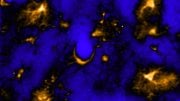
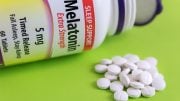
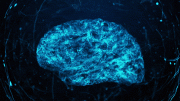


terimakasih keren
The whole premise sounds like bulls***. Speaking about drug users (of course drug user = addict) or people with depression and making hypothesis without any experiences to back this up. People use substances late in the evening or at night because the social contract makes it harder to be high during working hours.
Well, data will verify it of course, but the hypothesis itself is s*** and I wonder how one would think this
As someone who has DSPD (delayed sleep-phase disorder), I wonder if the inverse is true for people with our condition: that forcing ourselves to be awake in what society deems “normal” may cause similar issues. I know when I force myself to be on “normal” time, I feel many of these symptoms.
What is deemed normal though. I agree with the last guy. Some people have no circadian pattern, while some must sleep at night and other during the day they need sleep. I joke that my sleep pattern is just evolved since we have electricity and we don’t need to be out in the heat and under the blazing sun anymore to work i
or do things. Yes I think faster and clear once the sun goes down (i belive that might be heat related or it’d toobloody bright), though my will power for right and wrong are the same no matter the time of day. If suicide happen more at night, in my experience it’s because that is when they are alone with their feelings and what they’re going through. I feel more anger when I have to be awake during the day since society has yet to evolve from caveman hours. I know there alot of people who are naturally a night owl(which in my experience seen to be more balanced people whether they get 2 hrs of sleep for society or stay with their natural sleep cycle), I know there’s day time people (and these one seem to have a lot more issue with life), and then the people who just don’t have a natural sleep pattern (I feel so bad for these one). Will power is still will power, right and wrong are still the same. But then again maybe I’m just more evolved when it comes life. I do believe in making people adjust their sleep is cruel for society. I think there should be more help for people with sleep problems. Then they’re the issue which I think you were trying to get to where people who are not getting the sleep with their bodies natural rhythm are not doing OK mentally and physically. Yes that’s been a huge issue for what the last 20, 40, 60 or more years? One of the difference is we have way more people now. Our laws are going medival, people are still over worked, not taking care of our people, and we’re killing our planet.
Have you noticed they are literally describing ADHD symptoms? There are studies showing that if you have ADHD you are more likely to have a circadian rhythm disorder as well. Imagine if ADHD were a type of circadian rhythm disorder this whole time
The comments by Night Owl & Awifox are spot on.
For myself, I am a nightowl. My best work happens late at night when there is less chance for distractions. Also, I am more mentally on top of my game. When forced to operate outside my comfort zone of my personal body’s rhythm, I am less effective. For example, if I am giving a lecture at say 5 a.m. (due to time zones) & someone asks me a complicated question, I am less likely to access my full mental faculties.
Also, I am much more a pessimist in the morning then after midnight.
This hypothesis is still off the mark. It would be more accurate to examine individuals based on their natural body rhythms. Learning & working, we are more efficient & happier when we can function within our own internal body clocks. We have advanced/evolved enough in society to know & understand that for the world to function, properly, it takes more then a 9 to 5 schedule.
Examining or testing the hypothesis allowing for varied body clocks would yield a more accurate result.
Please stop the propoganda. I have sighted non-24 and am up after midnight most of the time. People like me write books like Your Sleep Sweet Spot that questions all the myths about nocturnal and other non day sleepers. So just stop!!
This article speaks on an issue that affects me personally. I gotta say its ignorantly written due to lack of any case study data and was derived from jet lag? Who’s this person’s editor? As a successful electrical contractor who’s bedtime is usually 2:30 am, I’m offended that according to you, I’m suicidal pill popping criminal!!!
All my life people always want to tell me what’s “normal” in today’s society. I’ve always responded with “what does normal even mean”? We are all humans and have many biological similarities but are also individuals. Each person’s behavior should be looked at separately and not the category messed up rejects because we’re up past our “bedtime”.
This is the second time I’ve come across this article. I find this to be total preposterous bulls***. This feels like thinking inside of a very small box. A very small, uber privileged box. For the lead author to have such pomp and circumstance of titles under her belt and to be positing this??? As my son would say, “what the actual F??”. Who’s propaganda are you trying to sell lady? As an artist, I would create my best work at night. As a Mother, I would find peaceful calm and solace after dark. Night is a time of mystery and the Unknown. A time of ideas and truths. Night holds the Moon and the stars- that shine out from the void to let us know we’re not alone; to guide our intuition. Night is comforting as it drapes over us all- making the dawn of morning all the more majestic. I actually find this sort of article rather frightening- reminiscent of “Farenheit 451” or something – except instead of book burning firemen, it’ll be night police- rounding up all of us artists, eclectics, mystics, mental health disordered, outside the box thinkers, weirdos & freaks to be locked up in some prison colony to be re-educated by the Saviors of the Sun!!!!